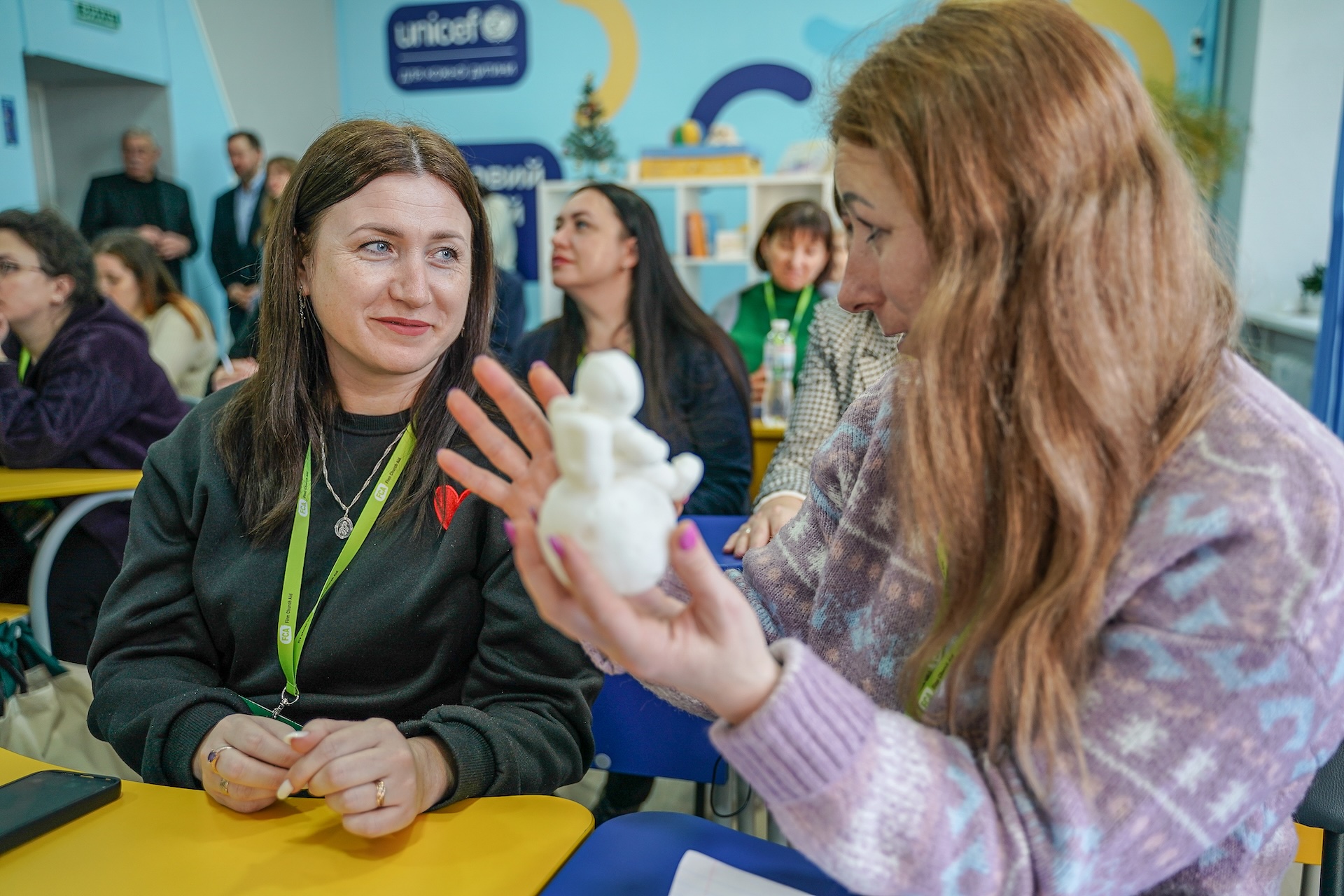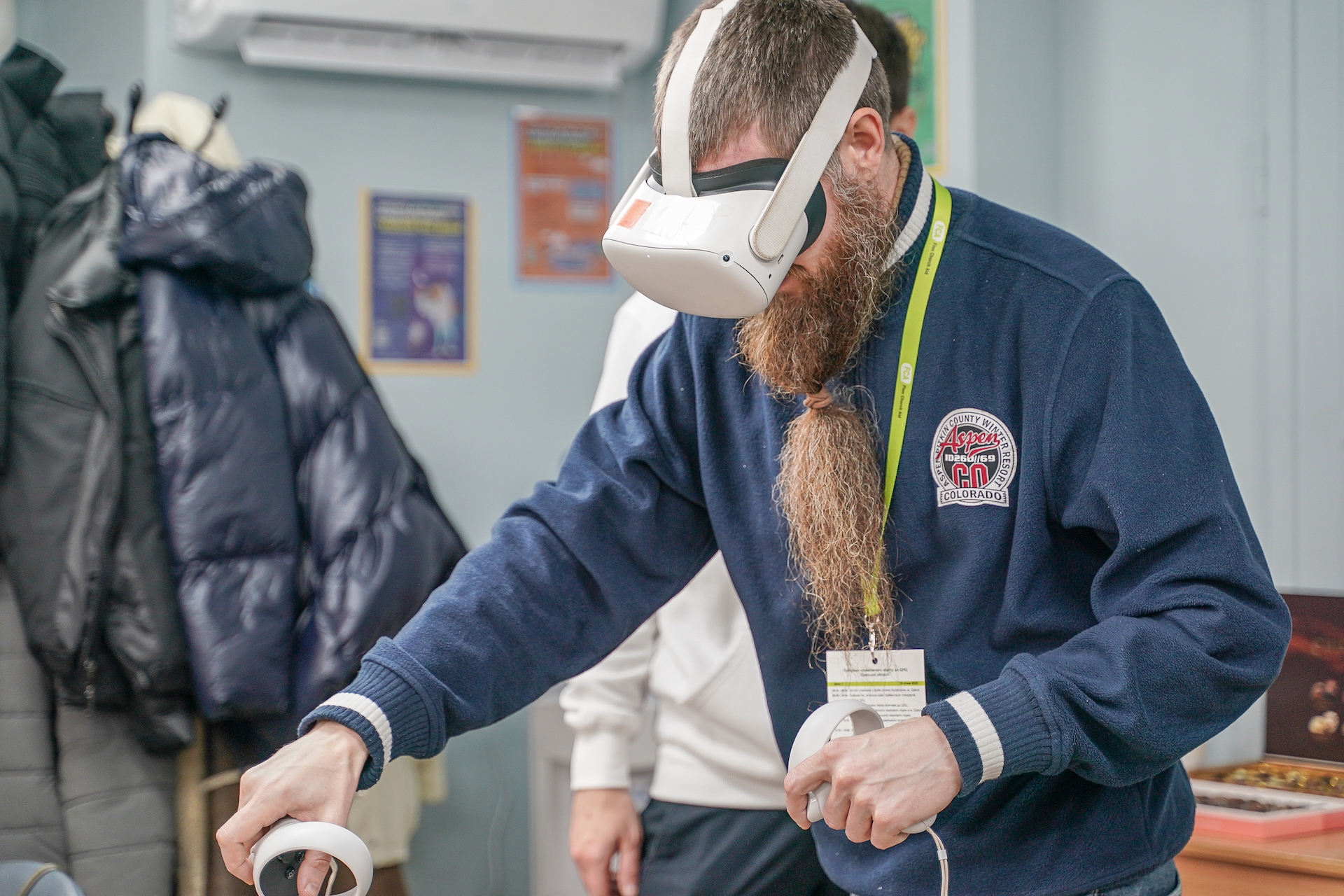Ukraine’s teachers find inspiration in FCA-supported digital learning centres
At a series of workshops supported by FCA, teachers from several regions of Ukraine are coming together to share their experiences of working with digital learning centres. One teacher from Kharkiv found inspiration in a recent workshop in Odessa.
THE WAR IN UKRAINE has drastically reshaped the educational landscape. Schools and colleges have been destroyed, forcing students and teachers to adapt to remote and blended learning. The challenge now is not only to maintain access to education but to innovate, ensuring that students acquire the skills needed for the modern workforce.
One solution making a difference is the Digital Learning Centres (DLCs), established in vocational education institutions across Ukraine. These centres provide access to modern technology, enhance digital literacy, and offer career guidance and skill development that align with the demands of the labour market.
The initiative is being implemented by Finn Church Aid (FCA) with financial support from Education Cannot Wait (ECW), in partnership with savED, UNICEF, and with partner, the Association of Innovative and Digital Education (AIDE), which supported the organisation of these workshops, in collaboration with the Ministry of Education and Science of Ukraine.
A key component of this initiative is a series of experience exchange workshops, where educators from regions without DLCs learn from their colleagues already working in digital centres. For many participants, including Olha Vlasova, a teacher from Kharkiv, this experience was a turning point.
A workshop that changed perspectives
For over 30 years, Olha Vlasova has taught Ukrainian language and literature. As Deputy Director for Educational Work at the Kharkiv Vocational College of Construction, Architecture, and Design, she has witnessed numerous changes in education, but the concept of Digital Learning Centres was entirely new to her.
“We are in the early stages of setting up a DLC at our college. I joined this workshop to understand how these centres operate and how they can benefit our students,” Olha shares.
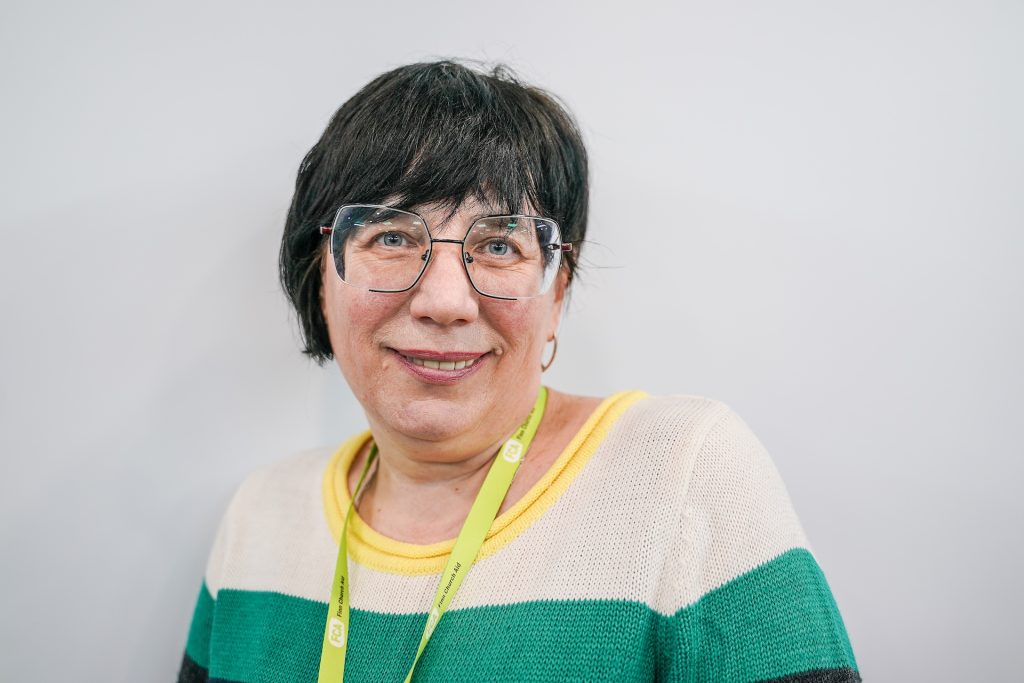
During the workshop in Odesa, in the south of Ukraine, participants visited several institutions that have successfully integrated Digital Learning Centres into their curriculum. Olha was particularly inspired by the use of 3D printers in education, a tool that creates new opportunities for students in design, architecture, and engineering.
She was also galvanised by hearing about strategies to bridge learning gaps. This include digital tools and educational platforms designed to help students strengthen their knowledge in core subjects.
Moreover, a nationwide career guidance initiative at Odesa Lyceum No. 7, which helps students make informed career choices and acquire essential skills for the job market was a practical example she could see working at her own institution.
However, what had the greatest impact was not just the technology, but the educators behind it.
“Meeting teachers already working with DLCs and hearing about their successes and challenges made me realise the potential these centres hold,” she says.
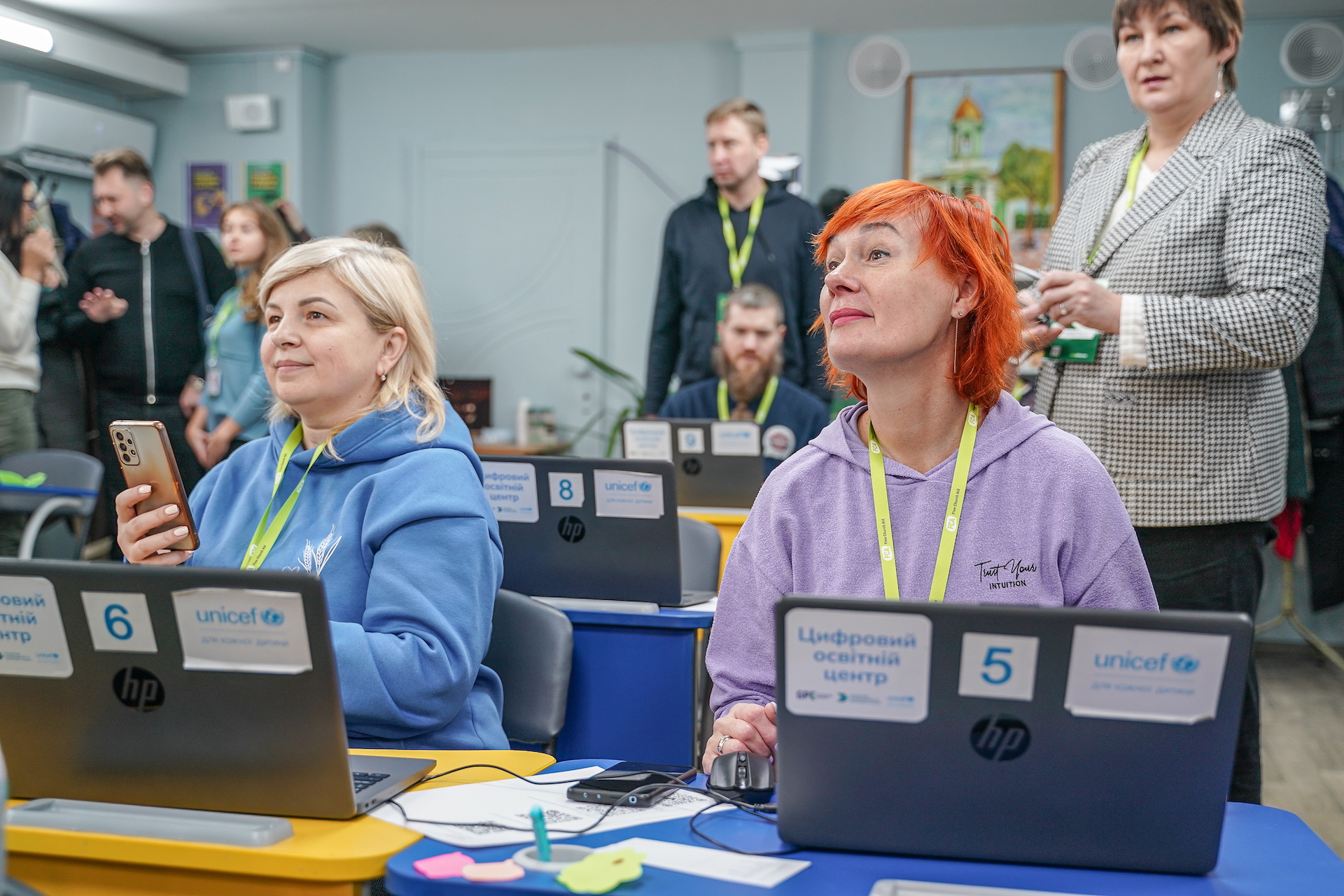
Building the future: a Digital Learning Centre in Kharkiv
Returning from the workshop, Olha and her colleagues began actively preparing to launch a Digital Learning Centre at their college. Their vision includes:
- Providing psychological support for students, parents, and teachers through digital tools and training sessions.
- Addressing learning gaps in Ukrainian language and literature, mathematics, history, and foreign languages through interactive digital platforms.
- Training students in 3D printing technology, equipping them with valuable practical skills for future careers.
- Hosting workshops for educators to integrate modern teaching technologies into vocational education.
- Leveraging artificial intelligence for career guidance, helping students navigate their professional pathways with AI-driven insights.
The initiative is further supported by FCA, who will provide additional equipment and resources valued at 1,250 USD per centre following these exchange workshops. This funding will enable educators to apply their newfound knowledge in practice and create a state-of-the-art educational environment in Kharkiv.
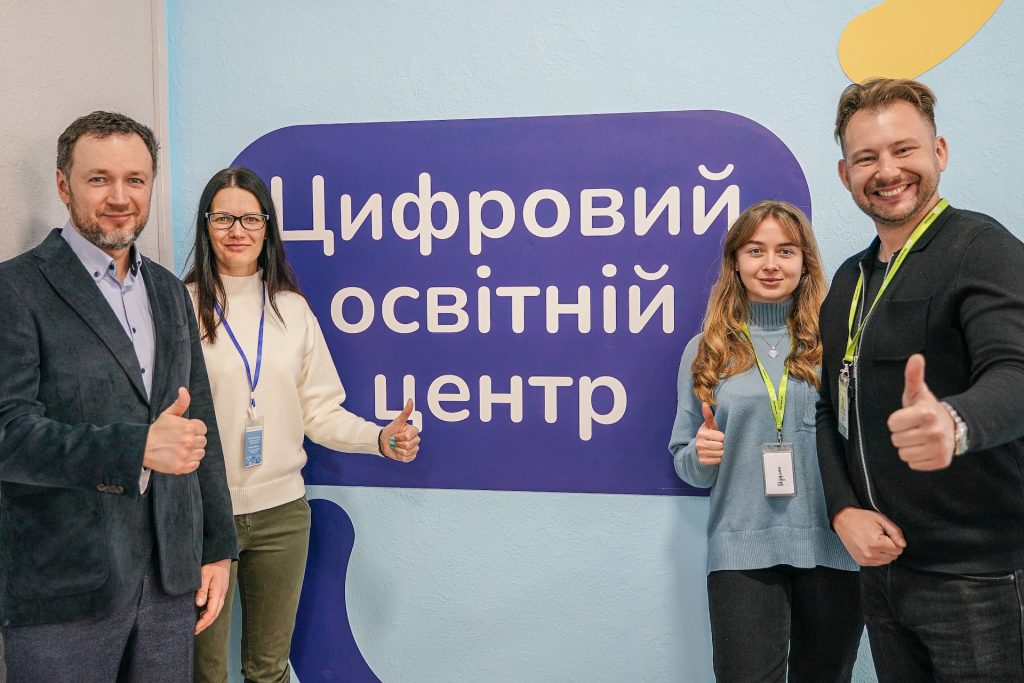
Education for the future
Before attending the workshop, Olha had only a vague idea of how digital tools could be integrated into vocational education. Now, she is convinced that this is not just an opportunity—it is a necessity.
“I strongly encourage educators to participate in these workshops. They offer hands-on experience, demonstrating how modern technology can be seamlessly integrated into education while providing tools to enhance teaching and learning,” she emphasises.
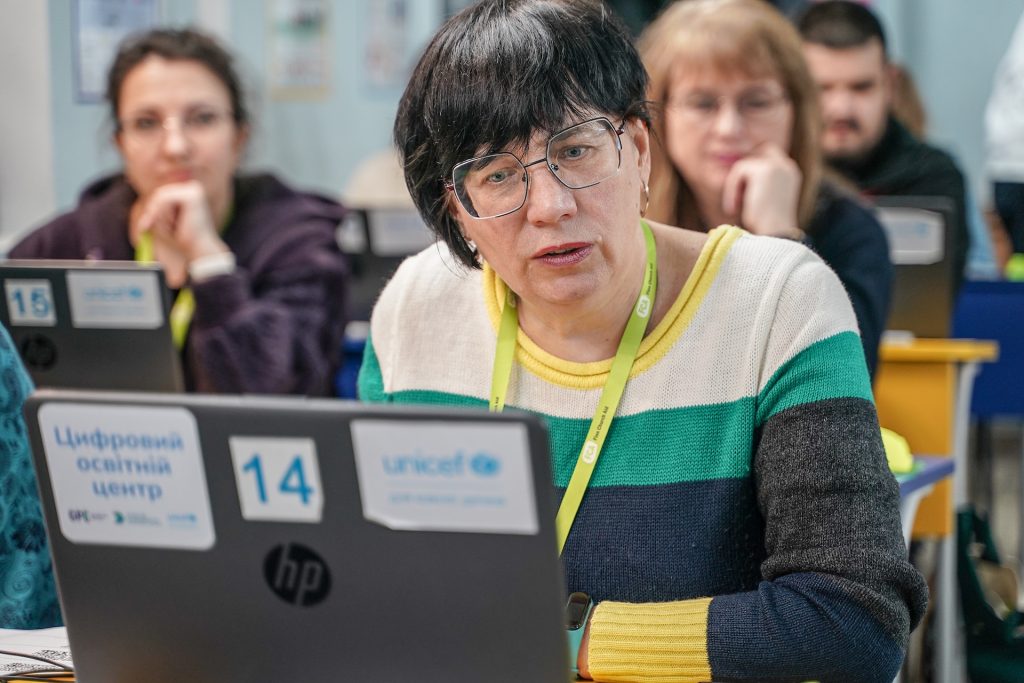
Through initiatives like Digital Learning Centres, vocational education in Ukraine is moving towards a future where students are better equipped with digital skills, ensuring they are prepared for both higher education and the job market.
Text: Veronika Korobko
Photos: Yevhen Vasyliev
